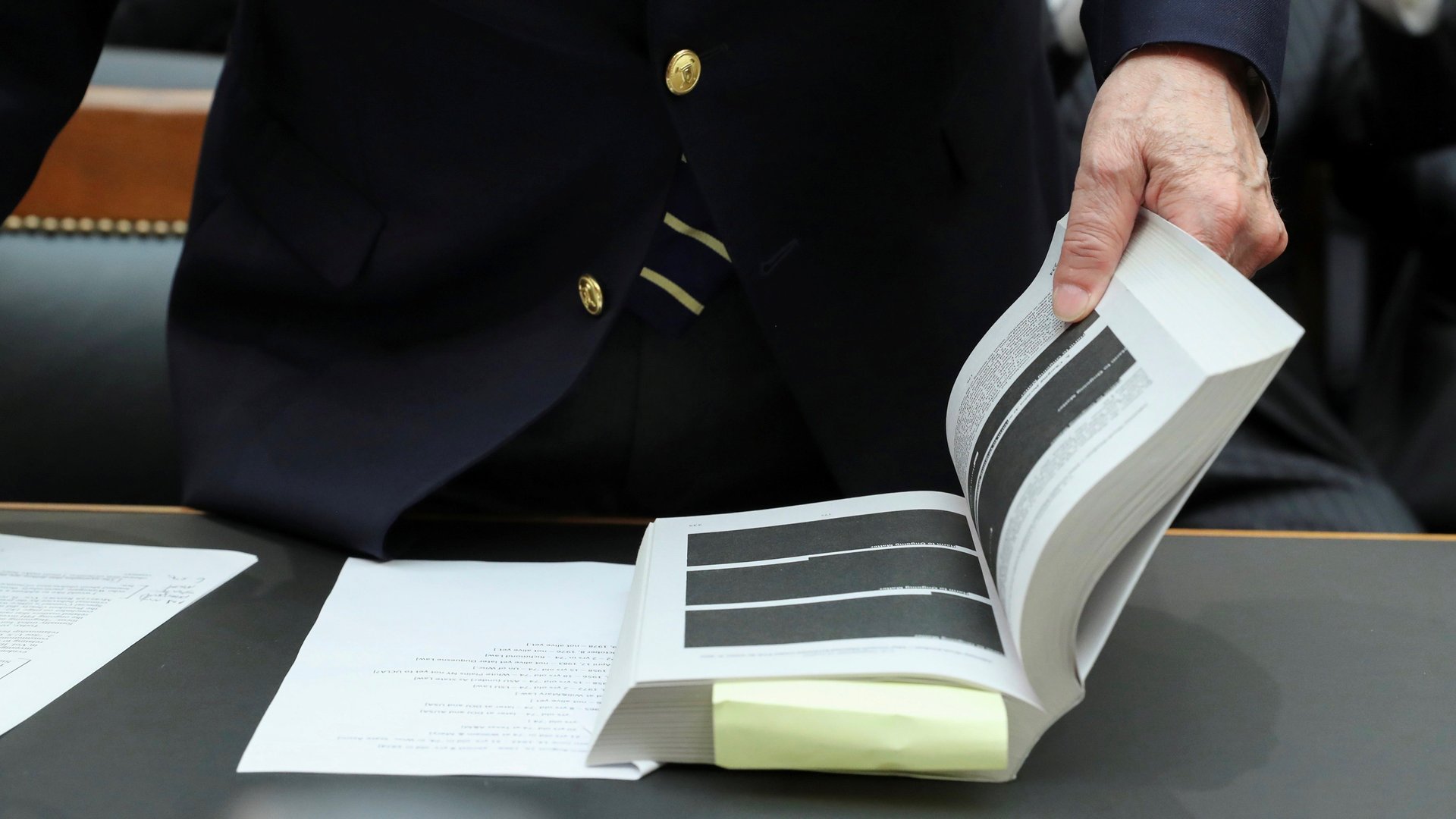Republicans believe Ken Starr could save Donald Trump
Kenneth Starr, the special prosecutor who precipitated the impeachment of Bill Clinton, is casting a shadow over today’s House Judiciary Committee questioning of Robert Mueller, whose report could conceivably lead to the same treatment for Donald Trump.


Kenneth Starr, the special prosecutor who precipitated the impeachment of Bill Clinton, is casting a shadow over today’s House Judiciary Committee questioning of Robert Mueller, whose report could conceivably lead to the same treatment for Donald Trump.
Mueller is testifying today about Trump’s efforts to thwart his independent probe into Russian meddling in the 2016 US presidential elections.
The former special counsel turned over his findings to the US Department of Justice confidentially in March and a redacted report was released to the public in April. Yet Republican members of the committee started by grilling Mueller about Starr’s 1998 report on Clinton, the last president to face indictment by the House.
Starr was operating under different rules more than two decades ago. His investigation spurred Clinton’s attorney general Janet Reno to issue a new directive about how an independent investigator must proceed. Republicans seem to still want to play under the old rules now.
Starr was given a starring role in the testimony. Republican Jim Sensenbrenner of Illinois started by citing Starr’s salacious report on Clinton’s sexual relationship with White House intern Monica Lewinsky—noting that “Starr in his report stated that Clinton’s actions may have risen to impeachable conduct.”
Why didn’t Mueller use this phrase in his report, Sensenbrenner seemed to ask: “You never use the term raising to impeachable conduct…[and there was] no statute to prevent you from using ‘impeachable conduct.'”
“Our mandate doesn’t go to other ways of addressing conduct,” Mueller replied, adding that he determined he could not prosecute a sitting president based on an advisory opinion from the Department of Justice’s Office of Legal Counsel. In his report, Mueller never suggested whether Trump committed a crime or should be impeached for his activities.
Now Republicans are using Starr’s report as the gold standard for presidential investigations, even though it was considered so flawed and overzealous that Reno was determined to change investigative procedures in its aftermath.
Starr, unlike Mueller, was obligated to send his report directly to lawmakers, rather than first giving it to the Department of Justice, as Mueller was required to do. On the basis of Starr’s findings, impeachment proceedings against Clinton were instituted by Republicans in the House. Clinton was acquitted by the Senate, a finding that allowed him to remain in office.
The Clinton White House described the Starr report as full of “irrelevant and unnecessary graphic and salacious allegations” designed to “damage the president.” Reno would later put the new regulations in place, requiring that any subsequent special-counsel’s report to be delivered first to the attorney general, not Congress. Now that shift is being used by Republicans to attempt to exculpate Trump and accuse Mueller.
Starr has since admitted that he regrets the partisanship and “unpleasantness” that resulted from his report.